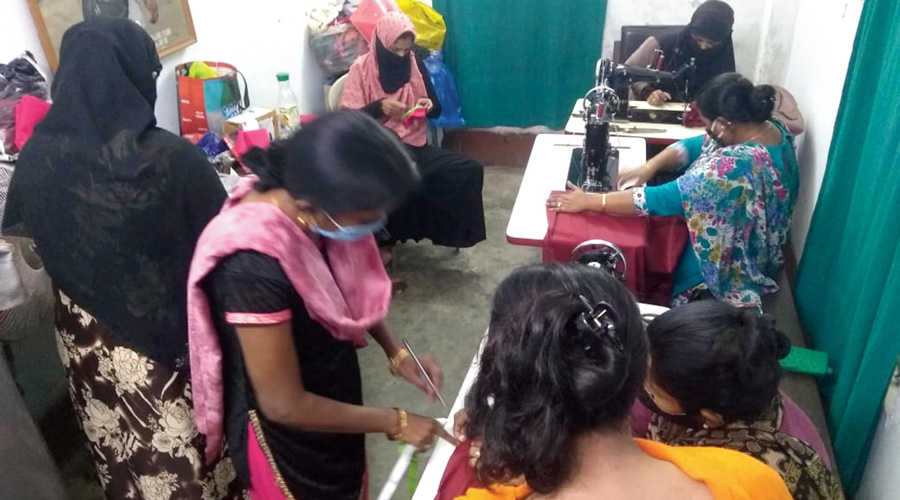A 50-year-old primary schoolteacher who lost her job in September last year because children had stopped going to school, started taking embroidery training in January.
With around 15 days left to complete the course, she has got an offer from a boutique and hopes to restart her career with something she did years back as a hobby.
Women across age groups, whose livelihood has taken a hit during the Covid pandemic — some of who live in slums — are getting three months’ training in embroidery, using sewing machines and tailoring so they can earn a living.
Calcutta Rescue started the project in January and aims to train 100 women in batches of 20 by 2021.
The schoolteacher, Sima Paul, and her brother lost their jobs during the pandemic.
Paul was part of an organisation and taught children in Classes I to IV in different schools.
“I was teaching children whose level was not equivalent to the class they were in. But small children are not coming back to school. So, in September, they told us we were not required. I was not the only one to lose my job,” said Paul, a history graduate.
“It is difficult to get a teaching job under the current circumstances. I hope that with this training in embroidery I am able to restore my livelihood in some way,” she said.
The “Restoration of Livelihood Project” has been started under the Calcutta Rescue Handicrafts project that has been running for the last four decades and receives orders from across the country and overseas.
The project includes women like 36-year-old Monika Patra whose husband worked at a private firm as an electrician but since the office is closed, he is no longer required.
“The pandemic has decimated jobs and livelihood… The project supplies women with skills so they can earn an income. Beyond that, for these women it’s restoring their dignity and place in society,” said Jaydeep Chakraborty, CEO, Calcutta Rescue.
The women are getting a stipend of Rs 150 per day, so their travel expenses are taken care of.
It is difficult for some women to spend hours at the training because they have children at home who need their time and attention.
“We conduct a thorough screening before enrolling the women to understand their interests and future plans so we know they will put the learning to some use. Some have started getting offers and boutiques have approached us. We plan to give some of them work at the handicraft unit,” said Arunava Ghosh Roy, manager, Calcutta Rescue Handicrafts.
“We also see that the women have basic education because tailoring includes measurements,” he added.
The NGO also plans to give some of them sewing machines, he said.











